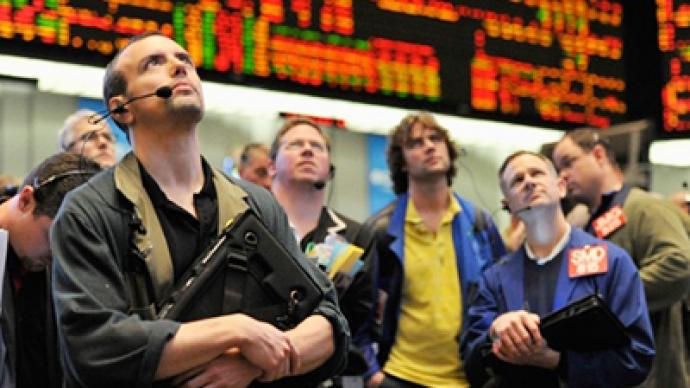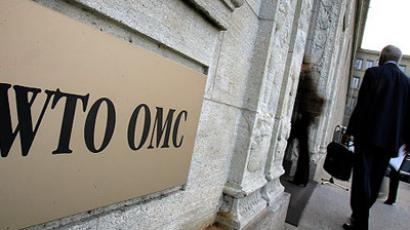The U.S. outlook and Russia

With the U.S. Federal Reserve cutting the country’s economic growth, and lifting the inflation forecast for this year, Business RT spoke with Roland Nash, Сhief Strategist at Verno Capital, about the implications for the Russian economy.
RT: Was the decision a surprise?RN: “You never quite know what the Fed is going to do, so there were some people in the market that were afraid the Fed would move from this remarkable period of monetary loosening to something tighter, but that didn’t happen and the markets are not terribly surprised that its continued.So it wasn’t a huge surprise.”RT :Why is the Fed so keen to extensively support the U.S. economy even after S&P downgraded its outlook for the U.S. economy?RN: “They really don’t have much choice at the moment.The US needs to have growth, it needs to get growth from somewhere and the economy itself is not generating any, the private sector is not generating any.That leaves fiscal policy and monetary policy.Fiscal policy is getting more and more difficult because of the debt the US has, so that really just leaves the Fed.The Fed has very little choice now, but to continue with historically loose monetary policy.”RT: What’s happening to the dollar following the Fed’s statement? What could that mean for Russia?RN: “You know, if you print 600 billion dollars, and you go out there and spend it and you continue to say that you are going to have a very loose monetary policy, when the rest of the world is already going through a tightening cycle, then you are going to have a weak currency for a long time.So the dollar will continue to be weak, its just a race to reach the bottom between the Euro and the dollar quite frankly right now.And what does it mean for Russia, you know, when you have a weakening dollar it means that commodity prices rise.And when commodity prices rise that obviously helps the Russian budget situation.But Russia really needs to have a stable oil price for a sustained period of time if it is going to manage its own macro-policy effectively.You need to have a stable dollar for Russia to be able to, a stable oil price for Russia to be able to have a stable macro-policy for the medium term.”RT: So a weak dollar is not good for Russia at all?RN: “A weak dollar has problems for Russia as well.The US is exporting inflation across the globe.It is exporting it into China and it is also exporting it into Russia.And Russia has got a problem with inflation right now – inflation is beginning to pick up, and having a stronger oil price just puts more inflationary pressure into Russia.”RT: How long can they keep this weak monetary policy?RN: “It is going to get tougher over time.Effectively what the US is doing right now is gambling the US dollar as a reserve currency to try and stimulate the US economy, and at some point people are going to not want to continue to buy US debt, because the dollar continues to depreciate.Why would you want to hold more dollars? And when that happens it is going to get even more difficult for the US to keep interest rates low.The market is going to force those interest rates higher.So it is virtually impossible for the Fed to keep monetary this loose an indeterminate period.They will keep it loose as long as they possibly can.But at some point markets are going to say they don’t want this any more.”RT: How do you expect the Russian markets to perform following the Fed's decision and Bernanke’s statements?RN: “It does give a boost to the markets, it gives a boost to anything that isn’t dollars. When the Fed is going out and printing 600 billion dollars and putting it into the market people don’t agree that’s the paper any more they want to hold something else.That includes equities, and Russian equities are A.Not dollars, and B. the biggest commodity exporter in the world.So people want to hold commodities and they don’t want to hold dollars, so they buy Russia.But that is not a long term reason why you would want to hold Russian equities.It would be much better of Russian equities were being stimulated by Russian companies changing and becoming more efficient, rather than the Fed just going and printing a lot of dollars.”














